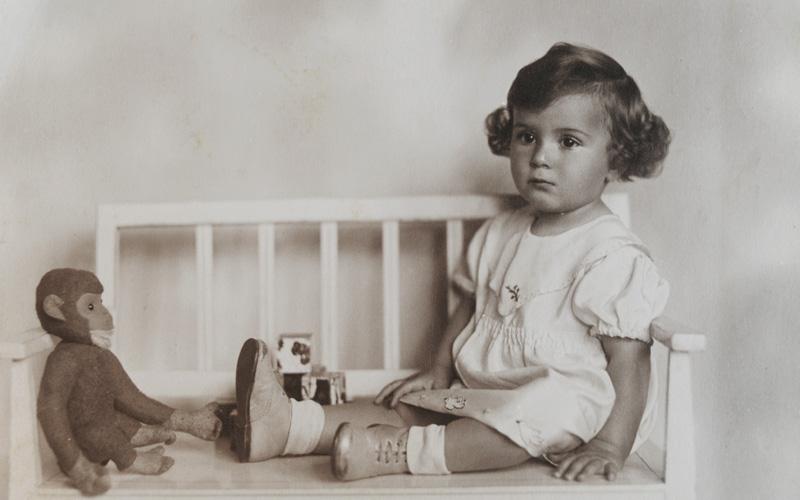

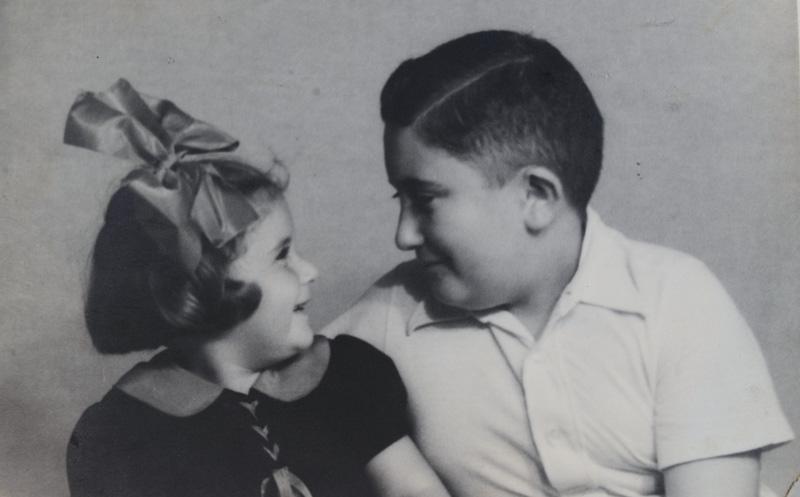

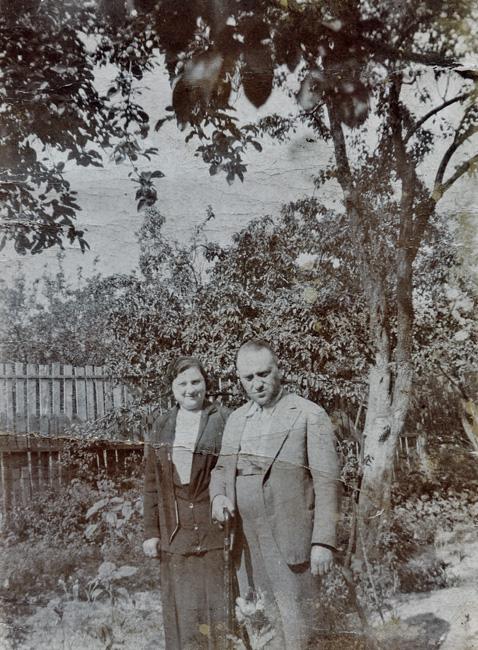

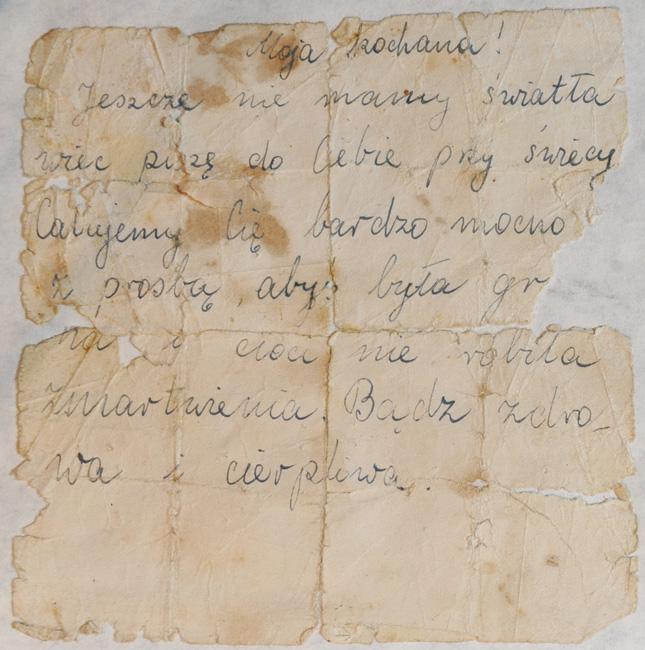

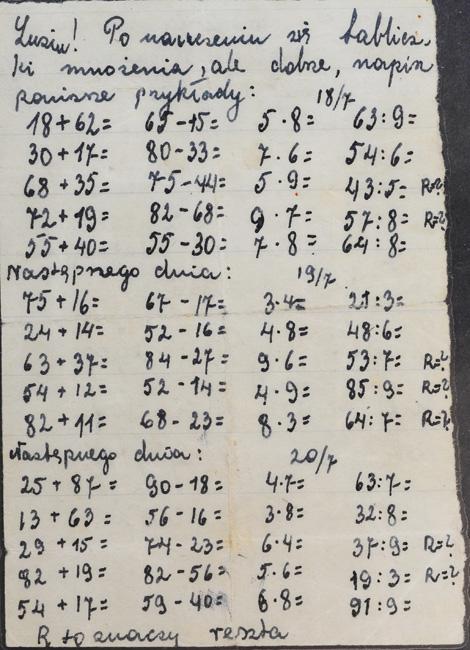

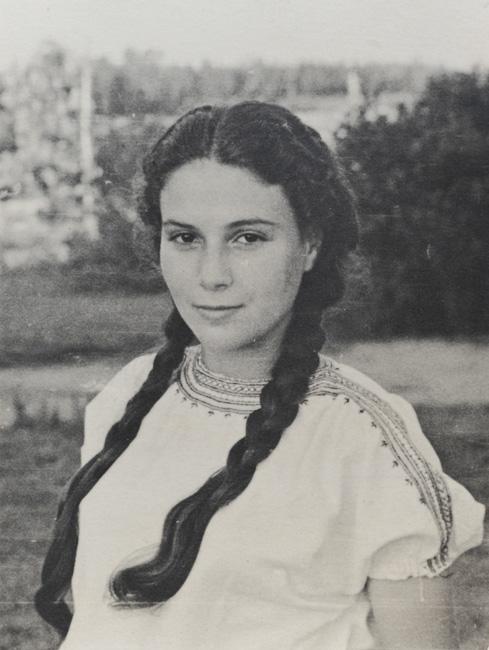

Sunday to Thursday: 09:00-17:00
Fridays and Holiday eves: 09:00-14:00
Yad Vashem is closed on Saturdays and all Jewish Holidays.
Entrance to the Holocaust History Museum is not permitted for children under the age of 10. Babies in strollers or carriers will not be permitted to enter.












Miriam Frank née Weinbaum donated notes that she received from her parents and brother to Yad Vashem. For a few months during 1942, these notes served as the sole communication channel between Miriam and her family. In the event, these short missives were to be the final words that Miriam received from her family.
Miriam Frank was born in 1934 in Częstochowa, Poland to Hershlik Weinbaum and Haya Rashel née Eichner, a younger sister for Bolek. The family was wealthy and religiously observant. Her father visited Eretz Israel (Mandatory Palestine) twice before the war and purchased an orchard (about 30 dunams) by Kibbutz Gan Shmuel where his nephew Benjamin (Bolek) Paggy lived.
In 1939, Bolek visited Częstochowa and pleaded with Miriam’s parents, aunts and uncles to allow him to take the children back with him to Eretz Israel. The parents, who could not foresee what the future held, refused to part from their children and to send them to cope alone with the difficult conditions in Eretz Israel.
When the war broke out, the family fled towards Warsaw because of the shelling and later returned to Częstochowa, where they lived in the ghetto amid severe overcrowding. On 21 September 1942 (Yom Kippur – the Day of Atonement) a large Aktion was carried out in the ghetto. In its wake Miriam’s parents, aunts and uncles decided to escape to the Aryan side of the city. Miriam was hidden with a Polish woman in the center of Warsaw, in exchange for payment. Her parents and brother hid in separate places. Miriam maintained the connection with her family through notes and short letters that her ‘aunt’ (as Miriam called her rescuer) would give her. In one of these notes her mother wrote to her:
My dear!
We still have no electricity, so I am writing to you by candlelight.
Sending you a big kiss with a request that you be [missing word] and don’t make any trouble for aunt.
Be healthy and patient.
From his hiding place, her brother Bolek sent her small notes with grammar and arithmetic exercises as homework.
In April 1943, during the Warsaw Ghetto Uprising, her brother was caught while moving from one hiding place to another, and was tortured at the Gestapo headquarters. Her mother, who was near the Gestapo building trying to gain information about her son, was caught. Apparently she had been given away by Miriam’s ‘aunt’s’ husband, who was a collaborator. Following her mother’s capture, her father, aunt and uncle were also caught. Miriam does not know of their fate to this day. Her brother was murdered in the Poniatowa forced labor camp near Lublin. The ‘aunt’s’ husband tried to pressure her to turn Miriam in but she refused, and later hid an additional couple with their daughter. The ‘aunt’ used to host Germans in her house, and they would drink with their hosts, never dreaming that a young Jewish girl was peeking at them through the keyhole of the adjoining room.
Towards the end of the war, following the bombardment of Warsaw, Miriam and the Polish family fled to a distant village. In May 1945 the Red Army entered the village. Miriam returned to Warsaw with her ‘aunt’ and decided to convert to Christianity and to join her ‘aunt’s’ family. A few months later, she was located by her mother’s two sisters who had survived. The ‘aunt’ demanded that they pay the balance of the money that Miriam’s father owed her before she was willing to return the girl to them. Miriam returned to Częstochowa with her aunts but continued to pray as a Christian for some time.
In 1949, Miriam immigrated to Israel together with a group of orphans. Her cousin took her to Kibbutz Gan Shmuel, where she lives to this day.

Thank you for registering to receive information from Yad Vashem.
You will receive periodic updates regarding recent events, publications and new initiatives.

"The work of Yad Vashem is critical and necessary to remind the world of the consequences of hate"
Paul Daly
#GivingTuesday
Donate to Educate Against Hate


Worldwide antisemitism is on the rise.
At Yad Vashem, we strive to make the world a better place by combating antisemitism through teacher training, international lectures and workshops and online courses.
We need you to partner with us in this vital mission to #EducateAgainstHate
The good news:
The Yad Vashem website had recently undergone a major upgrade!
The less good news:
The page you are looking for has apparently been moved.
We are therefore redirecting you to what we hope will be a useful landing page.
For any questions/clarifications/problems, please contact: webmaster@yadvashem.org.il
Press the X button to continue



